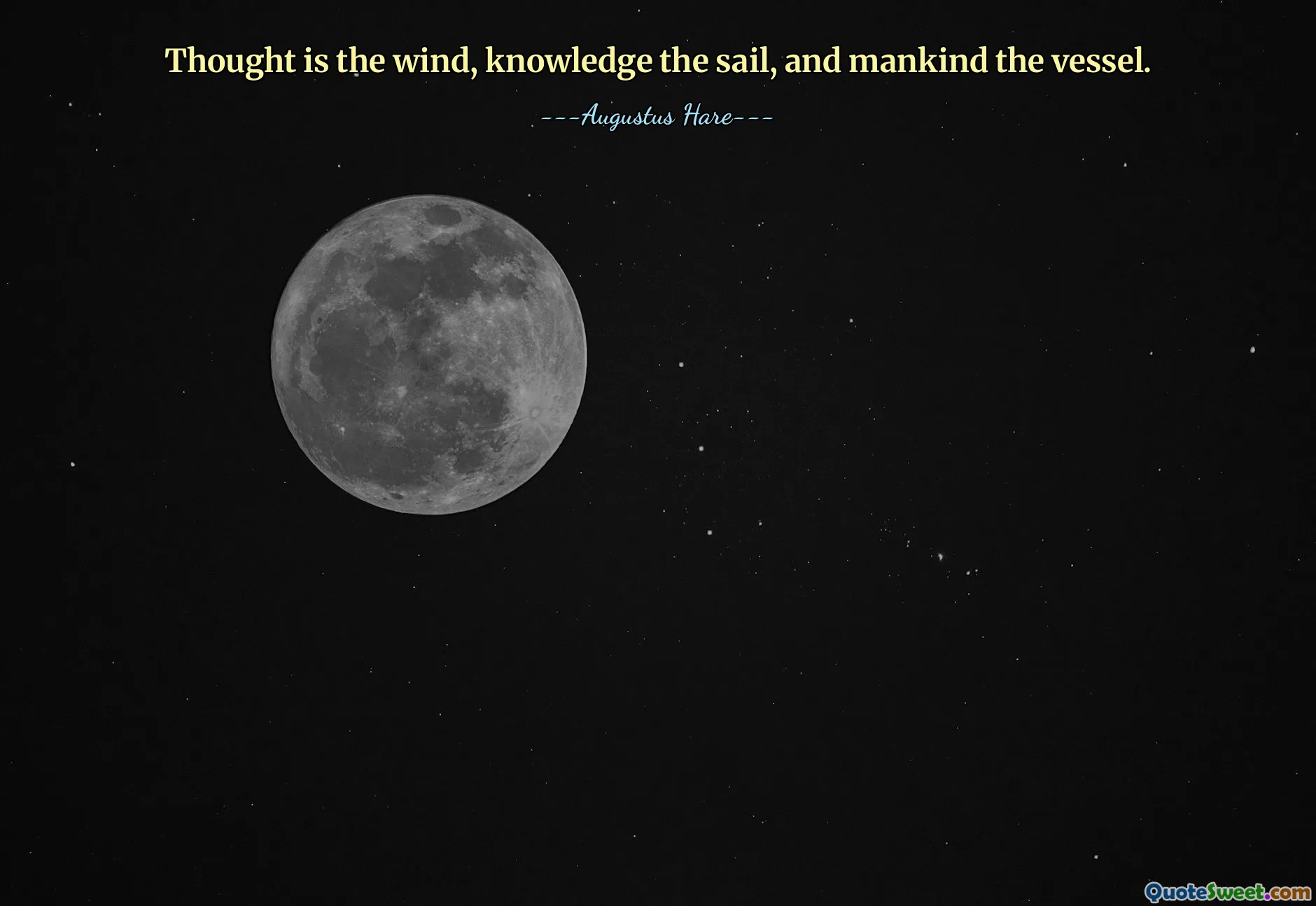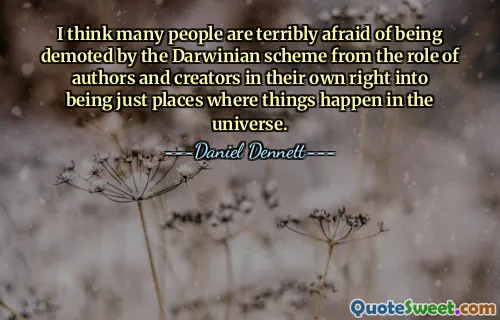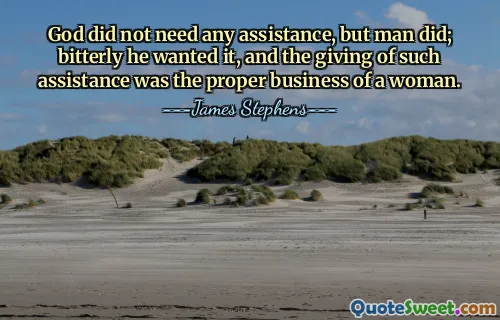
Thought is the wind, knowledge the sail, and mankind the vessel.
This metaphorical quote by Augustus Hare deeply resonates with the dynamic interplay between human cognition, knowledge acquisition, and our collective existence. When contemplating the elements, the wind is unseen yet powerful—it pushes and directs. Thought, likened to the wind here, represents that intangible, ever-moving force of ideas and contemplation which moves us forward. Without thought, progress and direction would be nonexistent. Knowledge as the sail is a brilliant representation: a sail harnesses the wind's power and translates it into purposeful movement. Knowledge is not just raw information but a tool—an enabling construct—that allows us to channel our thoughts effectively and steer our course through life and the universe. Finally, mankind as the vessel implies that humanity is the carrier, the body in which these forces operate. We are intricately dependent on our capacity to think and to know; without these, we would be directionless and powerless. This triad beautifully encapsulates the essence of human development and purpose: thought initiates, knowledge structures, and mankind embodies the journey. It encourages a holistic view where abstract phenomena such as thoughts are not divorced from human existence but are fundamental forces driving us. Furthermore, this metaphor invites us to consider how well we, as a collective, utilize our internal forces. Are we attuned to our thoughts and diligent in expanding our knowledge so that the vessel of mankind may sail smoothly, purposefully, toward progress? Ultimately, it implies responsibility and empowerment—our future depends on recognizing and aligning these three elements harmoniously.










